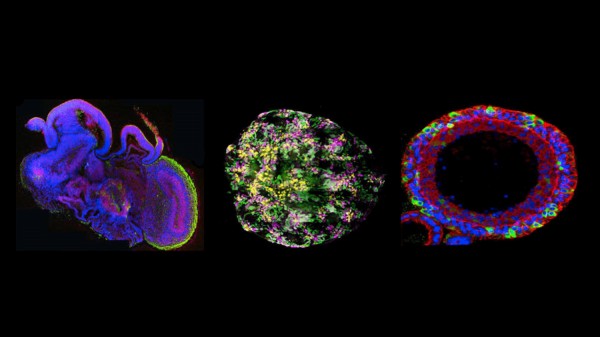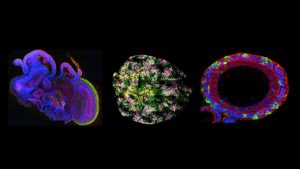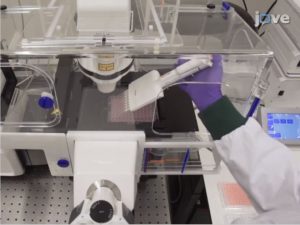A major obstacle in the study of human development and disease is - humans. Developmental processes and disease progression in humans take dozens of years, making it difficult to study them. Many model organisms (from single-celled, yeast to mammals like mice) serve as a proxy for understanding the biology of humans.
Our similarities to yeast and flies are just as astounding as our differences from our closest primate relatives. Despite the knowledge accrued using model organisms, there exist many gaps in our understanding of human biology. This called for a new tool, which appeared in 2009 with the development of human intestinal organoids (Sato et al., 2009).
Organoids are a simplified and miniaturized version of organs that are produced in vitro. They can demonstrate realistic micro-anatomy in 3D. Organoids can be derived from tissue cells, embryonic stem cells or even induced pluripotent stem cells; leading to the phrase “organ in a dish”. Organoids derived from embryonic stem cells provide a snapshot of developmental processes allowing scientists to better understand embryonic development. The capacity to grow near-physiological, self-renewing organoids facilitates in-depth analysis of drug screening, disease modeling, stem-cell behavior and genetic screening from limited amounts of starting material.
A perfect example of the ways organoids have revolutionized the field can be seen in a recent JoVE Video Article from the Clevers lab at University Medical Center, Utrecht.
This article details an in vitro assay for assessing drug response in Cystic Fibrosis patients. The beauty of the technique lies in how the assay is carried out with minimal inconvenience to patients; by using organoids cultured from intestinal biopsy material. Such a technique makes assaying drug response efficient and pioneers the way for personalized treatments.
The era of 3D organ culture is just emerging, and the ways in which organoid systems can be manipulated and exploited for basic, clinical and translation research continues to grow by leaps and bounds.
If you are interested to read and watch JoVE Video Articles in developmental biology and medicine research, then check out these links below.




